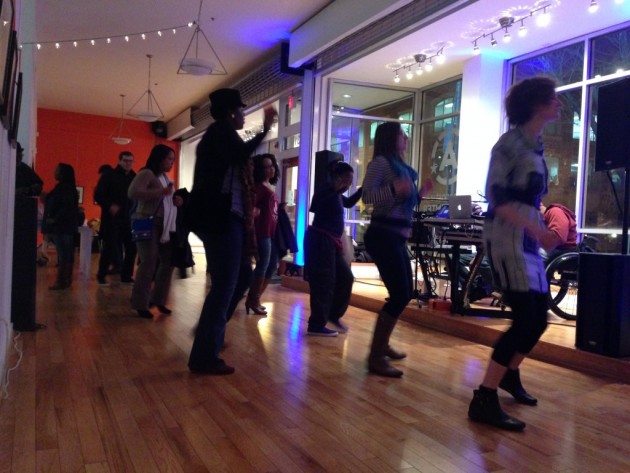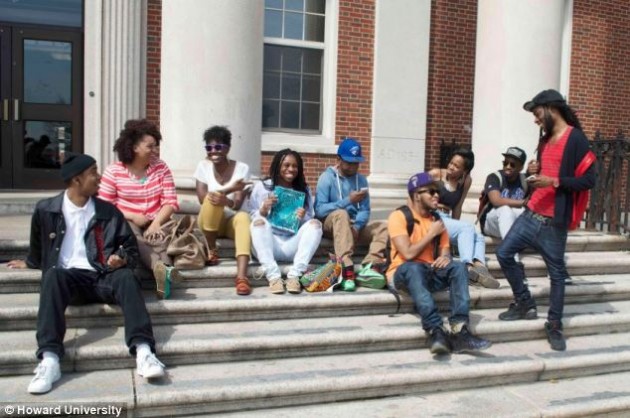Winning and losing at ‘Scrabble’ teaches pupils life lessons
The playing field is a 15- inch square grid decked with scoring hot spots colored pink, red, sky blue and ocean blue. Letters are the weapons, with “Q” often being the deadliest of all. And no, there’s no joystick. Still, students at Janney Elementary School in Tenleytown return every week to engage in the mind game known as Scrabble.
“Scrabble fosters an appreciation for language. It is refreshing to see the way kids use Scrabble,” said Stefan Fatsis, author of Word Freak and coach for the Janney Scrabble club.
Fatsis, whose first grader attends Janney, began the Scrabble club last school year as a way to get involved in his daughter’s school and to expose the students to another outlet for learning. The club welcomes fourth through sixth graders and meets every Thursday at 3:15 p.m. in the school’s library.
The children at Janney Elementary School are not the only ones fascinated by the wordplay in Scrabble. According to John D. Williams, executive director of the National Scrabble Association, the Washington, D.C. school is one of over 20,000 schools with over a million children participating in the NSA School Scrabble Program. The program is a free opportunity for schools to register their Scrabble clubs in the NSA school club roster to receive tips on how to use Scrabble as a teaching tool and up-dates on national Scrabble events, such as championships.
The children use what they learn from playing Scrabble in other activities and vice versa.
“I like reading. It’s fun putting my reading and writing together. I learn new words and use them in Scrabble,” said nine-year old Sam Masling, a fourth grader at Janney Elementary School. Masling, who became interested in the game after his mother gave it to him for his birthday, has been participating in the club for the last three weeks.
Wanting a challenge, sixth grader Sarah Mak, 12, signed up for the Scrabble club with friends in the beginning of the school year.
“When I’m writing something, I can refer back to the games I played and say, ‘Oh, I know how to spell that’,” she said.
Scrabble helps the students improve on necessary skills to have in daily life.
“It encourages a lot of critical thinking skills that makes you smarter and a better person,” Fatsis said.
Students agree.
“It’s really nice to learn words and what they mean. Scrabble helps you learn how to use words in a sentence in different ways,” said sixth grader Lena Jones, 11, who also began the club in the beginning of the school year.
“It’s helpful with logic because you have to decide which is the best move. Adding up scores helps with math skills too,” said 11-year old Annie Rosenthal, a sixth grader and second-year Scrabble club member. With each new word created on the board, the player has to immediately record the score.
About 15 years ago, NSA presented the idea of the School Scrabble Program to Hasbro, the company that owns the Scrabble trademark, Williams explained.
“No two games are ever the same. It is a fresh experience each time. There’s creativity. You make order out of chaos,” Williams, 62, said of the appeal of Scrabble. “There are lots of chances for scoring. I always say, ‘Chess is like soccer. Scrabble is like basketball’.”
Other students view the skills they learn in Scrabble as tools for a future career and as a test of personal improvement.
“I want to be a forensic scientist,” 11-year old Larry Frazier said. “In Scrabble, you always have to have an A and B plan.” He said that similar to a Scrabble player, a forensic scientist is not going to necessarily find desired answers directly in front of him. Instead, he has to be able to approach the situation from different angles in order to find the best solution.
Larry is a sixth grader who joined the Janney Scrabble club last year. He is a spelling-bee champ in the school and has almost mastered all of the two-lettered words in Scrabble.
“I sort of like competition. I like to see how good I am and better I can get,” said fourth grader Amara Jerome, 9, who prior to joining the club watched her mother and older sister play Scrabble several times.
The School Scrabble Program has garnered a large following and now, includes the National School Scrabble Championship (NSSC) for fifth through eighth graders. The championship includes teams of two that play six rounds of Scrabble. Each game is 22 minutes long. The two teams with the highest scores move on to play in the final round.
In its seventh consecutive year, the NSSC this year will take place in Providence, R.I., from April 24 to April 25. Janney sixth graders Charlie Williamson, 12, Max Mellott, 11, Isaac Sarnff, 11, and Emma Keyes, 11, will play in the championship.
The four students often practice together in games of two-on-two to prepare for the national competition. That Thursday was no different.
‘ERASION’ cannot be played, Charlie exclaimed to his opponent Isaac, beginning a friendly uproar over this seven-letter word. Fatsis was called to the table for a ruling.
Fatsis used a Scrabble dictionary to show that ‘ERASION’ is indeed legitimate. Isaac and Max had a solid wordplay.
The objection did not end in Charlie’s favor. The right to challenge an opponent is part of the game. Players learn to handle this aspect.
“I’m working on mastering the three-letter words,” Charlie said of another way he is preparing for the championship. He played in the championship last year.
Max, Isaac and Emma said they are all excited to attend the championship for the first time.
“Even if you don’t play it competitively, it is fun just to learn a bunch of words,” Max said.
In the past, ESPN has televised the championship with Fatsis as the commentator. This year the sports network will not cover the event, but live internet coverage will be streamed on the School Scrabble website.
“The level of play gets better every year. Many go on to play in adult tournaments and beat adults, even though they’re only 12,” Williams said.
He noted that Scrabble is “definitely” an unconventional way for kids to learn and teachers seem to appreciate that aspect the most.
Kim Bigelow, a second grade teacher at Janney, said she recommends Scrabble for “any student who likes words, spelling and a challenge.”
The students offer advice to newcomers to the world of Scrabble.
Scrabble is a game of perseverance.
“When you get really bad letters, try them out before you dump them,” said fifth grader Jonah Garland, 10.
Strategy is a key element in Scrabble, Larry noted.
“People think you have to be really good with words, which is kind of true, but it’s all about placement of the words,” he said.
The students realize that Scrabble is a game meant for fun and enjoy playing with friends.
“Make sure you aren’t a sore looser. In Scrabble you win a lot and lose a lot. Be able to learn from younger and older people,” sixth grader Lena Jones said.




